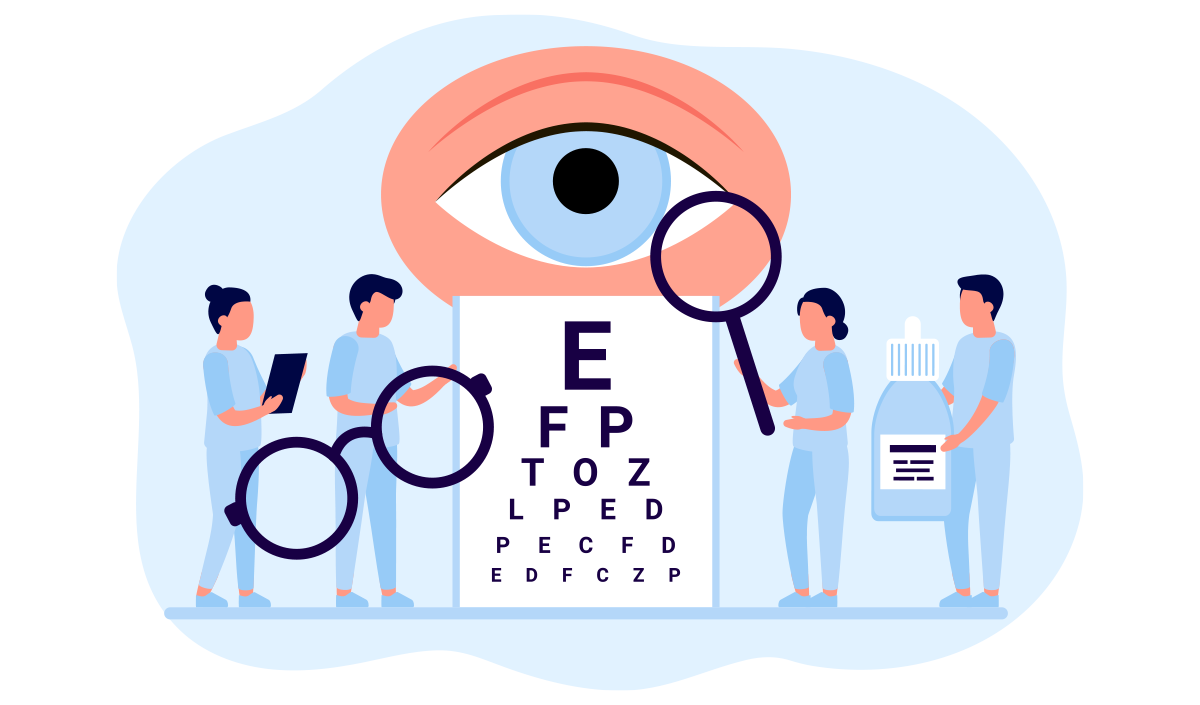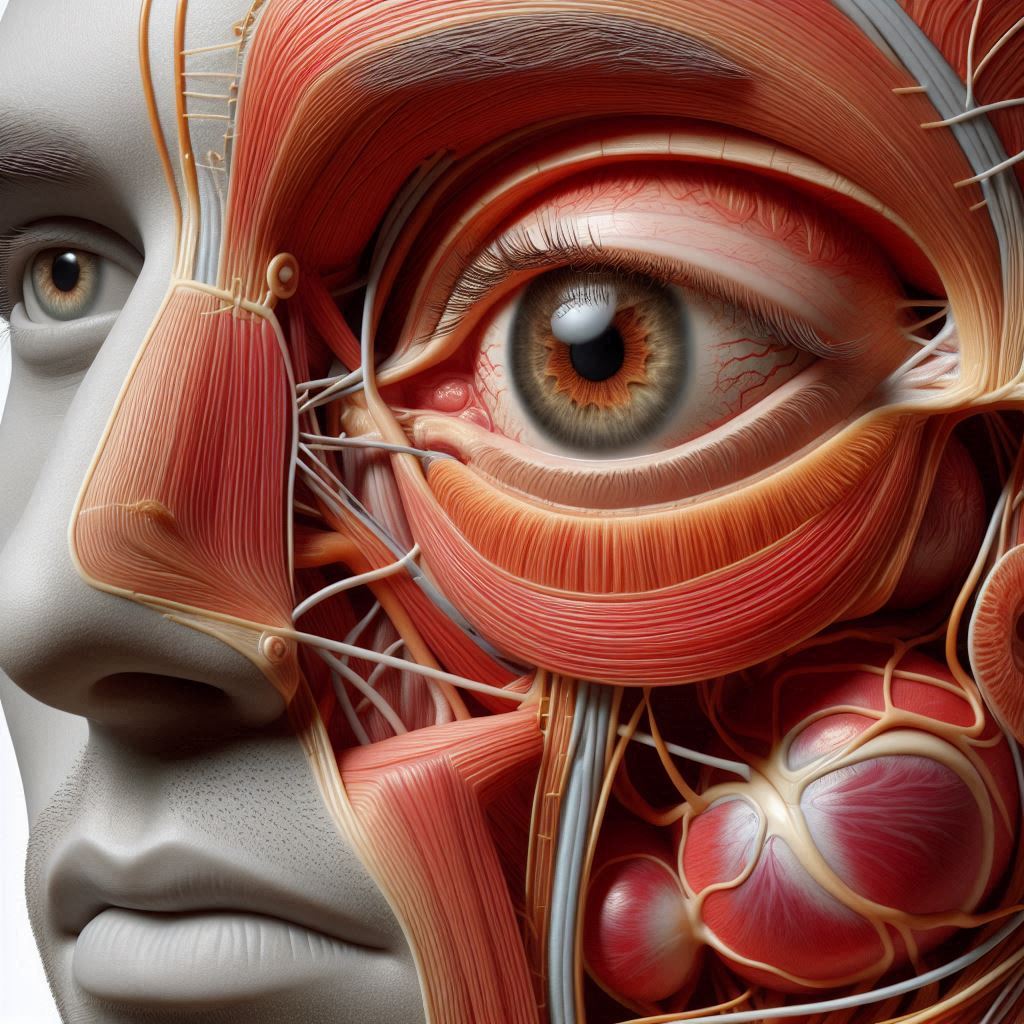This Course Structure is Curated as per the NEP-2020 Guidelines
Course Overview
The Bachelor of Optometry (B.O) at Malla Reddy Vishwavidyapeeth, Hyderabad, is an undergraduate course designed to train students to assist ophthalmologists and healthcare teams in diagnosing and managing visual disorders, prescribing corrective lenses, and providing comprehensive eye care services.
This program focuses on equipping students with the theoretical knowledge and hands-on skills from 1st semester itself. The curriculum blends theoretical knowledge with practical training in ocular anatomy, optics, and clinical optometry. Students gain hands-on experience in performing eye examinations, detecting refractive errors, and managing conditions such as myopia, glaucoma, and cataracts. The program also covers advanced techniques in visual assessments and corrective treatment options.
Graduates of this program emerge as ‘skilled Optometrists’, enabling them to pursue further higher studies and research in Optometry and Vision Science, along with plenty of job opportunities globally.

Course Details
Description: 4 Years Degree Program
No. of Seats: 40
No. of Credits: 160 minimum & as specified
- Eligibility
- Curriculum Structure
- Program Outcomes
- Career Enhancement
- Higher Studies
- Job Roles & Progression
The minimum eligibility for B. Optometry (B.O) is a pass in 10+2 with at least 50% in Physics, Chemistry and Biology from a recognized board (CBSE/ISC) or equivalent.
| Semester | Name of the Subject |
| Semester 1 | Anatomy – I Physiology – I Biochemistry – I Basics of Vision Science Practical: Anatomy and Visual Optics English & Communication Skills Computer Applications |
| Semester 2 | Anatomy – II Physiology – II Biochemistry – II Pathology and Microbiology Introduction to Optometric Instruments Practical: Instrumentation and Basic Refraction |
| Semester 3 | Ocular Anatomy and Physiology Visual Optics and Refraction – I Pharmacology in Optometry Clinical Application of Refraction Practical: Ocular Health Assessment |
| Semester 4 | Advanced Refraction and Binocular Vision Contact Lens Technology – I Research Methodology and Biostatistics Low Vision Aids and Rehabilitation Practical: Advanced Refraction Techniques |
| Semester 5 | Ocular Diseases and Therapeutics Contact Lens Technology – II Pediatric and Geriatric Optometry Quality Assurance in Optometric Practice Practical: Ocular Diagnostics and Therapy |
| Semester 6 | Advances in Vision Correction Technologies Public Health and Community Optometry Emergency Eye Care Management Practical: Community Outreach and Emergency Response |
| Semester 7 | Internship in Optometry Clinics Case Studies in Ocular Health and Refraction Practical: On-Job Training in Optometry Units |
| Semester 8 | Advanced Internship Thesis/Research Project Practical: Clinical Operations in Vision Care Services |
- Refraction and Visual Assessment: Expertise in performing eye examinations and determining visual prescriptions.
- Ocular Disease Diagnosis and Management: Skills in detecting and managing common eye diseases.
- Contact Lens Fitting and Technology: Proficiency in fitting and maintaining contact lenses for patients.
- Binocular Vision and Low Vision Rehabilitation: Training in managing binocular vision disorders and providing solutions for low vision patients.
- Community Eye Care: Skills in organizing and managing public health initiatives for vision care.
- Emergency Eye Care Management: Knowledge of handling acute ocular emergencies.
- Certification in Advanced Refraction Techniques: Specialization in complex refraction procedures.
- Contact Lens and Vision Correction Certification: Focuses on advanced contact lens technology and fitting techniques.
- Low Vision Rehabilitation Certification: Training in assisting patients with low vision to improve their quality of life.
- Community Optometry Certification: Covers public health initiatives and outreach programs in eye care.
- Ocular Disease and Therapy Certification: Provides expertise in diagnosing and managing ocular conditions.
- M.Sc. in Optometry or Vision Science
- Postgraduate Diploma in Clinical Optometry
- Master’s in Public Health (MPH) with a Focus on Eye Care
- Ph.D. in Vision Science or Optometry
| Duration | Roles and Responsibilities | Salary Range |
| 0-3 years | Optometry Technician, Vision Therapist | ₹4,00,000 – ₹6,00,000 per annum |
| 3-5 years | Clinical Optometrist, Contact Lens Specialist | ₹6,00,000 – ₹8,50,000 per annum |
| 5-10 years | Senior Optometrist, Ocular Disease Specialist | ₹8,50,000 – ₹12,00,000 per annum |
| 10+ years | Director of Vision Services, Consultant in Optometry | ₹12,00,000+ per annum |
Note: Salaries vary based on experience, location, and type of healthcare institution.

Fee Structure Per Academic Year - 2025
| Tuition Fee | Miscellaneous Fee | Scholarship | |||
| 125000 ₹ | 15000 ₹ | Above 95% – 125000 ₹ | Above 91% – 62500 ₹ | Between 81-90% – 12500 ₹ | Between 71-80% – 6250 ₹ |
| Tuition Fee | Miscellaneous Fee | Scholarship | ||
| 125000 ₹ | 10000 ₹ | Above 90% – 25000 ₹ | Between 80-90% – 12500 ₹ | Between 70-80% – 6250 ₹ |




